Crafting a compelling letter of recommendation for law school can truly make a difference in a candidate's journey. It's not just about listing accomplishments; rather, it's about sharing personal insights that highlight the individual's potential to succeed in the legal field. A strong letter paints a vivid picture of the applicant's character, work ethic, and passion for law, providing admissions committees with a deeper understanding of who they are. If you're curious about writing an impactful recommendation letter, keep reading for essential tips and a sample template!

Applicant's Academic Performance
The applicant, Jane Doe, has demonstrated exceptional academic performance throughout her undergraduate studies at Harvard University, achieving a cumulative GPA of 3.9 on a 4.0 scale. Her coursework, particularly in Political Science and Constitutional Law, has showcased her ability to analyze complex legal concepts critically. Jane's engagement in rigorous honors programs and her successful completion of advanced placement courses in her sophomore year further illustrate her strong commitment to academic excellence. Additionally, she has consistently ranked in the top 5% of her class, reflecting her dedication and hard work, setting a high standard among her peers.
Relevant Skills and Attributes
Proficient analytical skills are essential for law students, enabling them to dissect complex legal issues and synthesize information effectively. The ability to engage in persuasive communication, both written and oral, is critical in legal settings, ensuring that arguments and positions are clearly articulated. Strong research skills allow students to navigate extensive legal databases and scholarly articles, enhancing their understanding of laws and precedents. Critical thinking and problem-solving abilities assist in evaluating different perspectives and formulating viable solutions during case analysis or courtroom procedures. Teamwork and collaboration are valued attributes, especially in moot court competitions and group projects, fostering a supportive learning environment. Lastly, resilience and adaptability are indispensable traits in the face of challenging coursework and rigorous exam preparation, preparing future lawyers for the dynamic legal landscape.
Relationship with Applicant
A law school recommendation letter should focus on the specific professional relationship between the writer and the applicant. Highlight aspects such as the length of the relationship, the context in which you interacted (e.g., academic, professional, volunteer), and the skills or abilities you observed in the applicant. Include instances that demonstrate the applicant's strengths relevant to the law school experience, such as critical thinking, communication, and ethical reasoning. Emphasizing your role, whether as a professor, employer, or mentor, helps to establish credibility and provides insight into the applicant's character and potential for success in the legal field.
Specific Achievements and Contributions
A successful law school candidate exhibits remarkable achievements and contributions that underscore their potential in the legal field. Outstanding academic performance, such as a GPA exceeding 3.8 or a score in the top 10% of the LSAT, demonstrates dedication and intellectual capacity. Participation in significant internships, like those at established firms in New York City, provides practical experience that enhances understanding of legal principles. Leadership roles in organizations, such as president of the pre-law society, showcase the ability to lead discussions and organize events addressing legal issues, like mock trials or guest speaker seminars. Volunteer work with local legal aid clinics illustrates a commitment to social justice, offering pro bono services to underrepresented communities. These specific achievements and contributions not only reflect an exemplary candidate but also indicate readiness for the challenges of law school and a future legal career.
Endorsement and Personal Anecdotes
Law school recommendations hold immense value, particularly from esteemed faculty or professionals who can provide a well-rounded view of the candidate's abilities. Personal anecdotes illustrating the candidate's perseverance demonstrate essential qualities such as analytical thinking and strong work ethic. Specific instances, like leading a team in a mock trial competition at prestigious institutions such as Harvard or Stanford, provide tangible evidence of their skills. Describing the candidate's participation in significant internships, such as at the ACLU or local law firms, showcases dedication and passion for the legal field. Such endorsements emphasize the candidate's potential for success in rigorous environments and contribute to their overall narrative for acceptance into competitive law programs.
Letter Template For Law School Recommendation Samples
Letter template of internship supervisor recommendation for law students
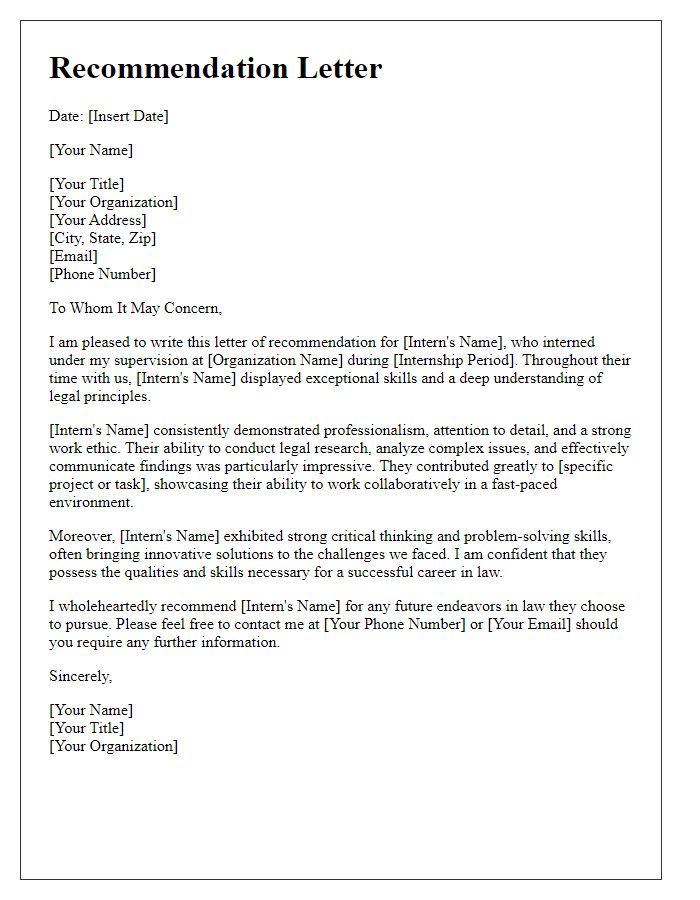

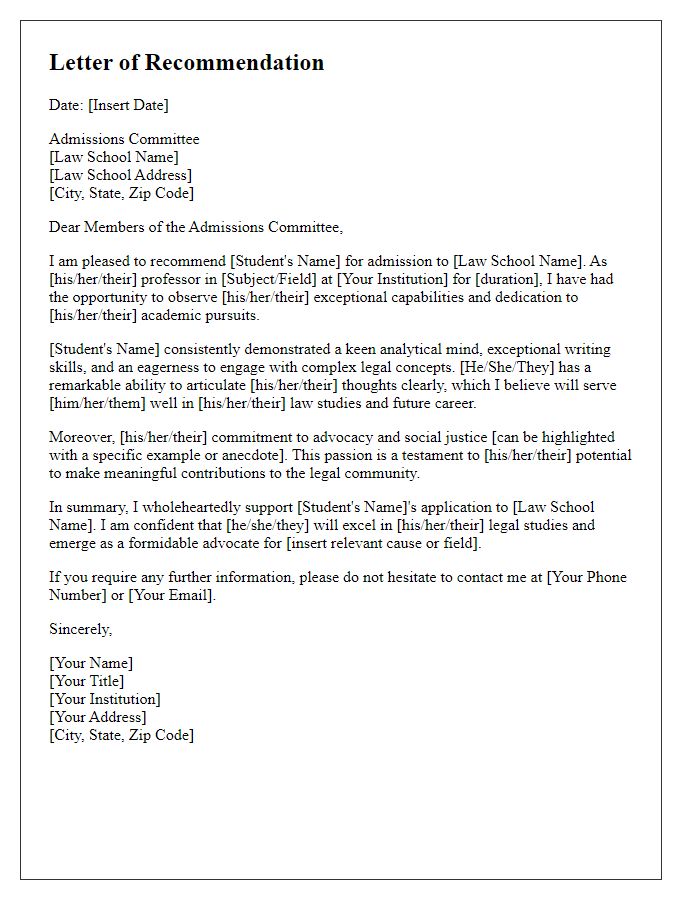
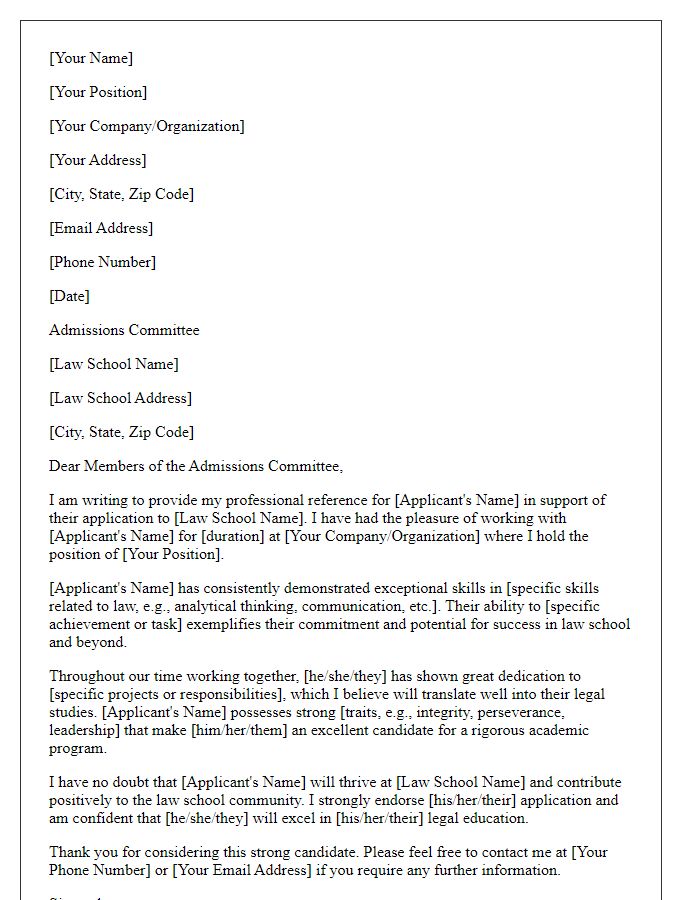
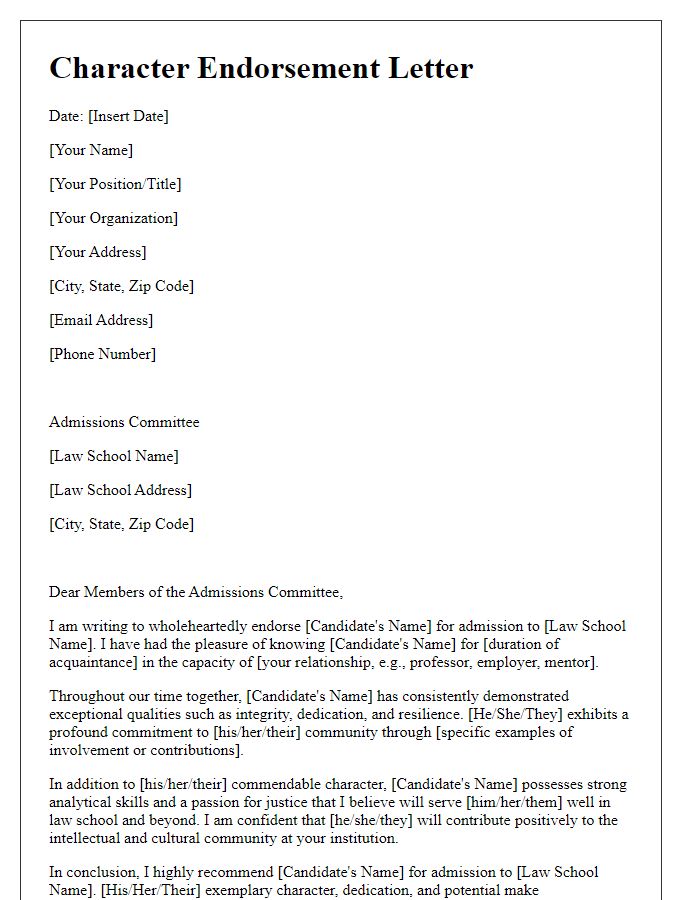
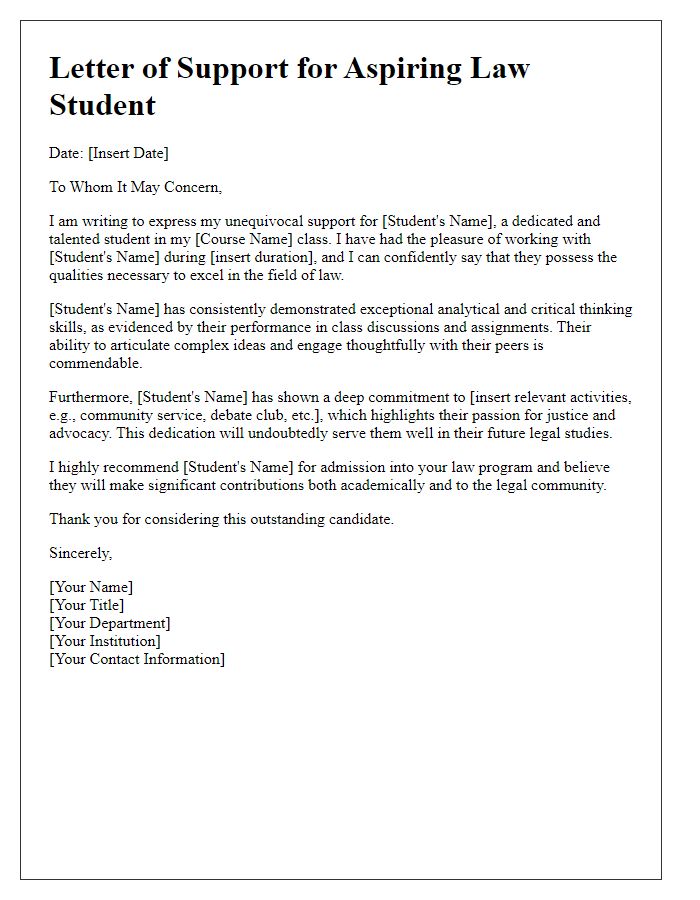
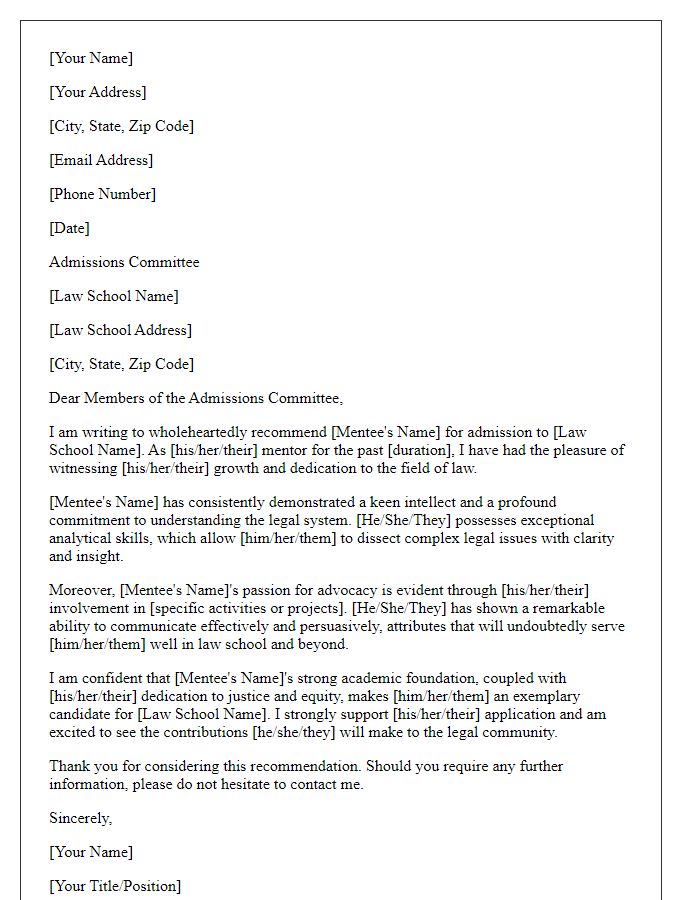
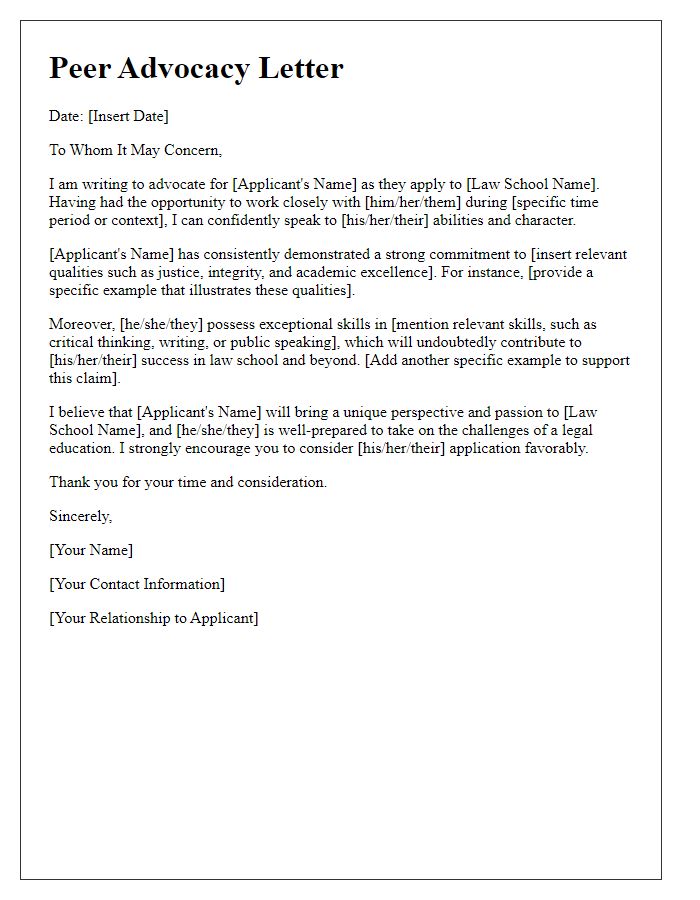
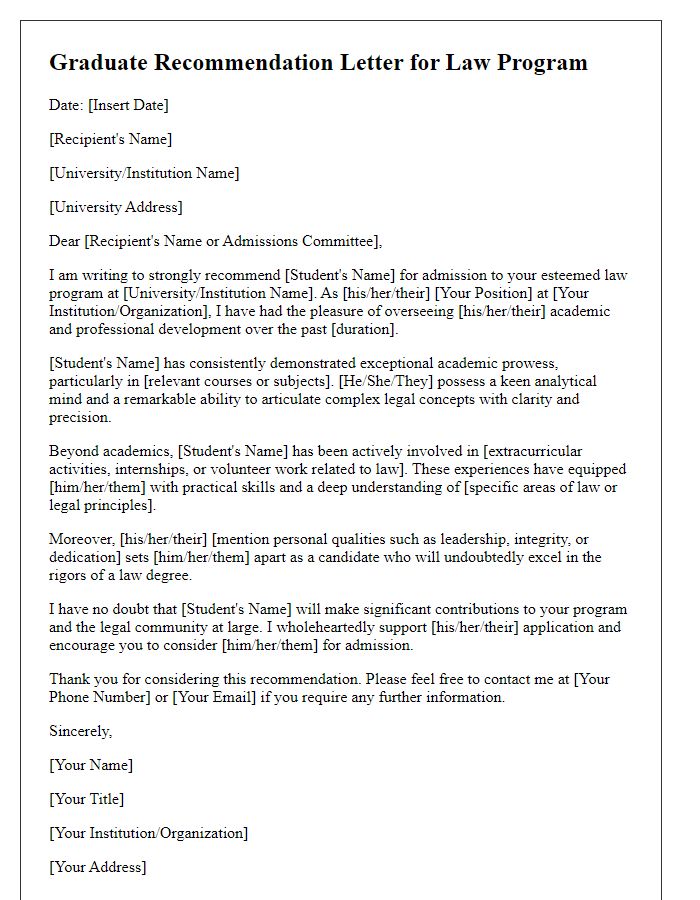
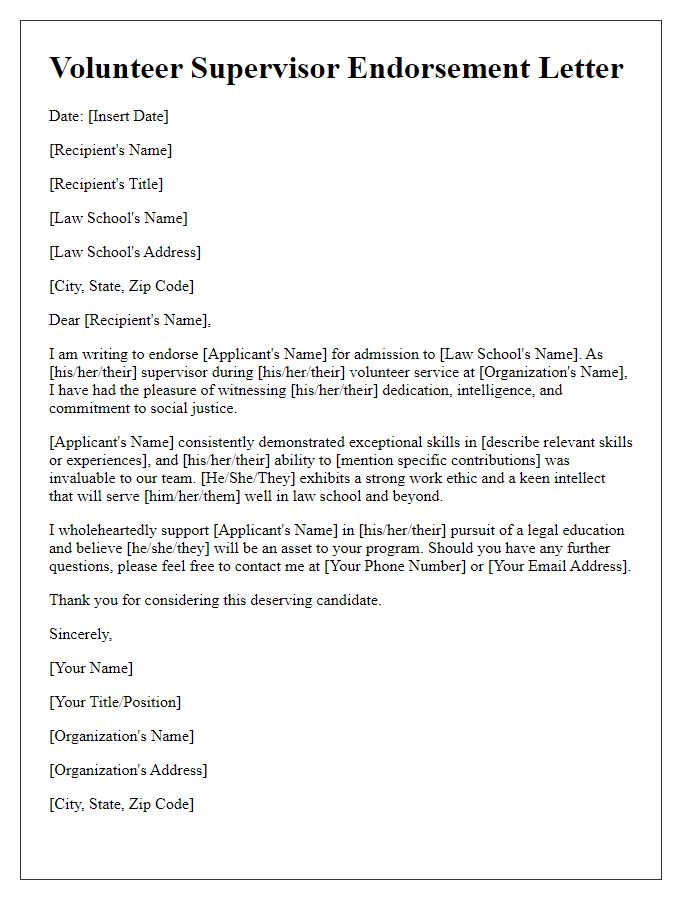
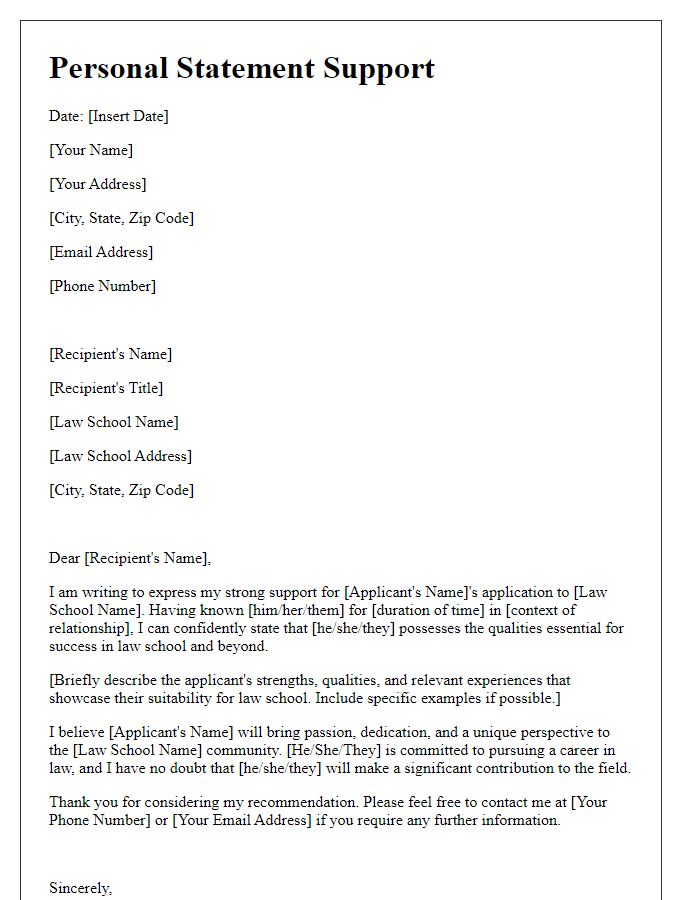


Comments